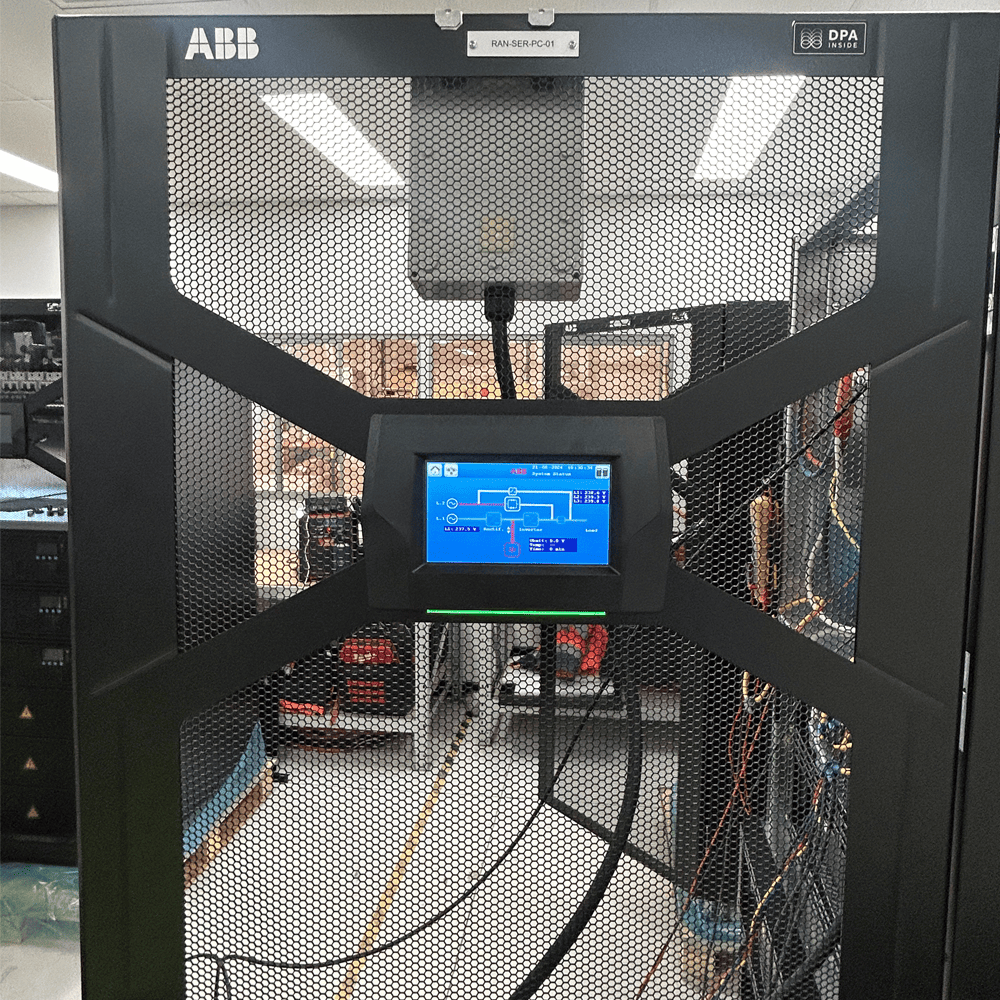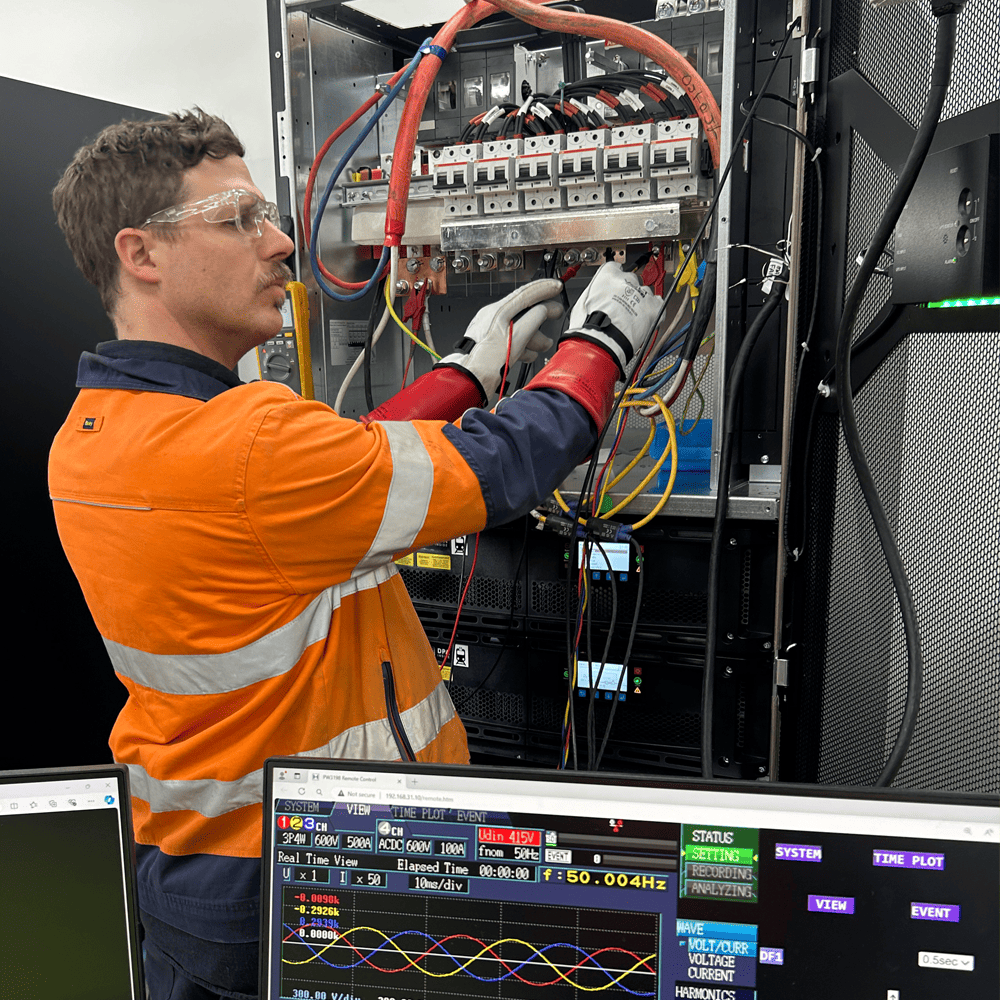In the rail industry, the reliability and compliance of power solutions are paramount. Electrical Power and Technology (EPT) has recently demonstrated its commitment to excellence by successfully completing Factory Acceptance Tests (FATs) for critical power systems tailored to the rail sector. This achievement underscores the importance of FATs in delivering dependable solutions that meet stringent industry standards and customer expectations.
The Importance of Factory Acceptance Tests
Factory Acceptance Tests are a crucial phase in the deployment of power systems, serving as a comprehensive evaluation to verify that equipment performs according to specified requirements before installation. For industries like rail, where operational continuity and safety are critical, FATs provide assurance that power solutions will function reliably under real-world conditions. This process not only ensures compliance with technical specifications but also fosters customer confidence by demonstrating the system’s capability to meet their unique needs.
Conducting FATs offers several benefits:
- Quality Assurance: By thoroughly testing equipment before it leaves the factory, manufacturers can identify and rectify defects, ensuring that the final product meets the highest quality standards.
- Risk Mitigation: Early detection of issues reduces the risk of equipment failure in the field, which is especially critical in the rail industry where safety and reliability are paramount.
- Cost Efficiency: Addressing problems during the FAT phase can prevent costly on-site modifications and delays, leading to more efficient project timelines and budget adherence.
- Regulatory Compliance: FATs verify that equipment complies with industry regulations and standards, ensuring that all safety and performance criteria are met before deployment.

Details of the Tested Systems
EPT’s recent FATs focused on two advanced systems designed for the rail industry:
ABB DPA250S4 Rail-Specific UPS System (50-150kW)
The ABB DPA250S4 is a modular Uninterruptible Power Supply (UPS) system renowned for its high efficiency and reliability. Designed to support critical, high-density computing environments, this system offers a scalable power range from 50kW to 150kW, making it ideal for various rail applications. Its decentralized parallel architecture (DPA™) ensures that each module operates independently, enhancing system reliability and availability. Notably, the DPA250S4 achieves a module efficiency of up to 97.6%, reducing operational costs and environmental impact.
Key features of the ABB DPA250S4 UPS system include:
- High Efficiency: With a module efficiency of up to 97.6%, the system minimizes energy losses, leading to lower operational costs and a reduced environmental footprint.
- Scalability: The modular design allows for easy scalability, enabling rail operators to expand their power capacity as needed without significant infrastructure changes.
- Reliability: The DPA™ ensures that each module functions independently, providing inherent redundancy and increasing the overall reliability of the power supply.
- Ease of Maintenance: Modules are online swappable, meaning they can be replaced or added without disrupting the system, ensuring continuous uptime—a critical factor in rail operations.
ABB DPA250S4 Rail-Specific Power Conditioning System (100kW – 300kW)
Complementing the UPS system, the ABB DPA250S4 Power Conditioning System is engineered to maintain power quality by mitigating issues such as voltage sags, swells, and harmonics. With a capacity ranging from 100kW to 300kW, this system ensures that sensitive rail equipment operates smoothly, free from power disturbances that could lead to malfunctions or downtime. Its modular design allows for scalability and redundancy, aligning with the dynamic needs of the rail industry.
The power conditioning system offers:
- Power Quality Improvement: By addressing common power issues, the system ensures that all connected equipment receives stable and clean power, enhancing performance and lifespan.
- Modular Flexibility: Similar to the UPS system, its modular architecture allows for tailored solutions that can grow with the operational demands of the rail network.
- Robust Performance: Designed to withstand the challenging environments often encountered in rail applications, the system delivers consistent performance under varying conditions.
Collaborative Testing Process
EPT places a strong emphasis on collaboration during the FAT process, working closely with clients to ensure that the tested systems align precisely with their operational requirements. By involving clients in the testing phase, EPT fosters transparency and trust, allowing for immediate feedback and adjustments as needed. This partnership approach not only ensures that the power solutions are tailored to the specific needs of the rail industry but also reinforces EPT’s commitment to customer satisfaction.
The collaborative testing process involves several key steps:
- Requirement Analysis: EPT engages with clients to thoroughly understand their operational needs, challenges, and objectives. This ensures that the power solutions are designed to meet specific performance criteria.
- Test Planning: A comprehensive test plan is developed, detailing the procedures, criteria, and standards that will be used during the FAT. Clients are invited to review and provide input, ensuring alignment with their expectations.
- Execution of Tests: Clients are encouraged to witness the testing procedures, providing an opportunity to observe the system’s performance firsthand and to ask questions or request clarifications in real-time.
- Feedback and Adjustments: Any issues or concerns identified during testing are addressed collaboratively, with EPT making necessary adjustments to ensure the final product meets all agreed-upon specifications.
- Documentation and Approval: Detailed test reports are provided to clients, documenting the outcomes and any corrective actions taken. Formal approval is sought before proceeding to delivery and installation.
This collaborative approach not only enhances the quality of the final product but also builds a strong foundation of trust and partnership between EPT and its clients.

EPT’s Commitment to Excellence and Innovation
At the core of EPT’s operations is a dedication to delivering high-quality, customised power solutions. The successful completion of these FATs reflects the company’s ongoing commitment to innovation, compliance, and customer satisfaction. By leveraging state-of-the-art technology and best practices, EPT ensures that its solutions remain at the forefront of industry standards, helping clients achieve operational reliability and efficiency.
Beyond the FAT process, EPT continues to support its clients with expert consultation, installation, and ongoing maintenance services, ensuring long-term performance and reliability. This end-to-end service model reinforces EPT’s reputation as a trusted provider of critical power solutions for the rail industry and beyond.
Conclusion
EPT’s recent completion of Factory Acceptance Tests for the ABB DPA250S4 UPS and Power Conditioning systems is a testament to the company’s expertise and commitment to delivering reliable, high-quality power solutions. These tests not only validate the performance of the equipment but also highlight the importance of collaboration, compliance, and innovation in the rail industry.